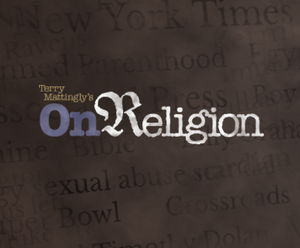
Call it the “Texit” parable.
America’s new civil war begins with the Supreme Court overturning Roe v. Wade, creating an abortion-free zone in the Bible Belt and most heartland states.
Enraged Democrats pledge to end the U.S. Senate filibuster and expand the number of high-court justices. After restoring Roe, they seek single-payer health care, strict gun control and sweeping changes in how government agencies approach the First Amendment, with the IRS warning faith groups to evolve — or else — on matters of sexual identity. Big Tech begins enforcing the new orthodoxy.
Conservatives rebel and liberals soon realize that most of America’s military, including nuclear weapons, are in rebel territory. Then federal agents kill Alabama’s pro-life, Black governor — while trying to arrest him as a traitor. That’s too much for Gov. Francisco Gonzalez of Texas, who decides that it’s time for a new republic.
David French fine-tuned this “Texit” vision early in 2020, while finishing “Divided We Fall: America’s Secession Threat and How to Restore Our Nation.” Best-known as a #NeverTrump conservative pundit, most of the Harvard Law graduate’s career has focused on old-school First Amendment liberalism — which in recent decades has meant defending conservative religious believers in religious liberty cases.
The book’s first lines are sobering, especially after recent scenes on Capitol Hill.
“It’s time for Americans to wake up to a fundamental reality: the continued unity of the United States cannot be guaranteed,” wrote French. Right now, “there is not a single important cultural, religious, political, or social force that is pulling Americans together more than it is pulling us apart.”
Americans are divided by their choices in news and popular culture. America remains the developing world’s most religious nation, yet its increasingly secularized elites occupy one set of zip codes, while most traditional religious believers live in another. In politics, more and more Democrats are Democrats simply because they hate Republicans, and vice versa.
Ironically, cultural conservatives now find themselves hoping that the Supreme Court will protect them, said French, reached by telephone. Conservatives know they have lost Hollywood, academia, America’s biggest corporations, the White House and both houses of Congress.
“I constructed the Texit scenario around court packing because that has become their last firewall,” said French. “Remove that thin line of justices in black robes and you open the door to what millions of Americans — especially religious conservatives — see as catastrophic changes … that could threaten our national unity.”
After he “war-gamed” several secession scenarios, French settled on two that he believed best fit current tensions — the First Amendment “Texit” crisis and a “Calexit” drama in which West Coast progressives attack the Second Amendment by banning private ownership of most weapons.
French isn’t alone in worrying about cracks in America’s foundations. Just before the fall election, a survey sponsored by Engagious and two other research firms found that 61% of those polled believe America could be facing civil war, with 40% “strongly” and 21% “somewhat” agreeing on that question.
At some point, said French, Americans need to regain their trust in Federalism, facing the reality — on many contentious cultural, political and religious issues — that Texas will never be California or that Tennessee will never be New York.
Can Americans tolerate other Americans that they consider intolerant?
In the book, he considers the case of quarterback Colin Kaepernick’s decision to kneel during the national anthem, protesting racism and police brutality. Many conservatives should ponder how they would have reacted if “Democratic president Barack Obama had called on the NFL to fire praying football player Tim Tebow because he was ‘injecting religion into football’?”
Then again, French described attending an off-the-record bridgebuilding national conference of activists from the left, right and center who had pledged to discuss divisive issues without veering into fury and stereotypes. He told the assembly he was pessimistic, then silenced the room with one question: “Is Caitlyn Jenner a woman?”
At the moment, said French, America “has an urgent need for a better class of politics and politicians. The problem is that it doesn’t appear that we have much of a public demand for a better class of politics. … For the great mass of Americans, I don’t see many signs of a reversal on that. I am only seeing signs of retrenchment.”










